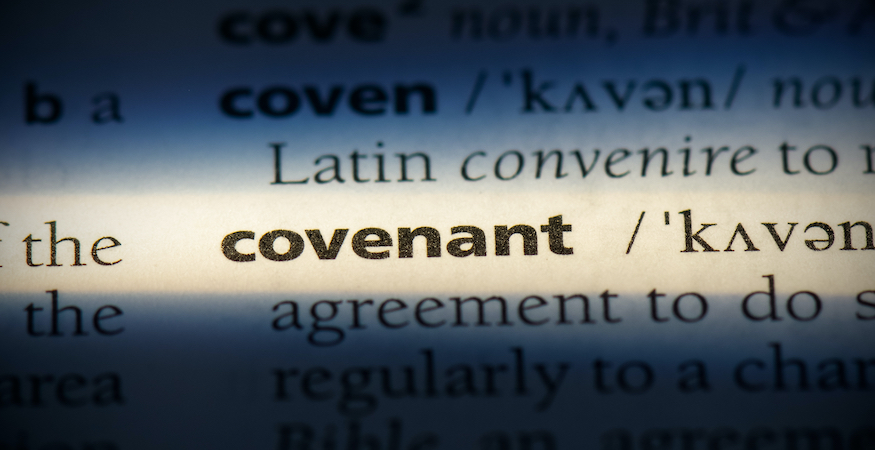Abraham & David: Keys to Understand Current Events & Prophecy
In our last article, we briefly discussed current events, particularly affecting Israel and the Middle East. We mentioned key Bible characters, Abraham and David, called ‘prophets’ in the Bible. In this article, we are going to see why they are referred to as prophets and how they are key to understanding Bible prophecy.
The Lord uses ironies to convey His principles. For example, if you want to receive, learn to give; if you want to have friends, learn to be friendly; if you want a promotion, learn to be humble; if you want to be first, practice being last; if you want to save your life, lose it for the cause of Christ.
Here is another irony: if you want to understand the future, learn from the past, particularly from the prophets and patriarchs. We learned that Abraham was a prophet (Genesis 20:7) and also a patriarch (Hebrews 7:4); David also was a prophet (Acts 2:30) and a patriarch (Acts 2:29). As prophets, they present keys to understanding the future; as patriarchs/fathers, they are the head(s) of the chosen people and Messianic lineage.
“To understand future prophecy, one needs a grasp of Biblical covenants”
Key to Understanding the Future? Covenant!
One principle I learned in Dwight Pentecost’s seminal book on eschatology, entitled Things to Come, was the notion that to understand future prophecy, one needs a grasp of Biblical covenants. Bible books like Genesis, the rest of the Torah, 2 Samuel, 1 Chronicles 17, and Jeremiah all hold keys to comprehending the future and Bible prophecy.
Which leads to the question: what is a covenant? It comes from the Hebrew word brit, used 280 times in the Old Testament and the Greek word diatheke, used 33 times in the New Testament. The Latin Vulgate word for covenant is testamentumxx, which is why our Bibles have two parts: an old covenant or testament and a new covenant or testament.
“When the terms of the covenant are kept, there is great blessing; when violated or broken, it can be disastrous”
A covenant is a strong binding treaty or agreement between two parties, normally with God and man, or God and a group of people. When the terms of the covenant are kept, there is great blessing; when violated or broken, it can be disastrous. When, in the key terms of a covenant, God says “You will”, the covenant is conditional, but when He says “I will”, then it is unconditional. Covenants were ratified by the shedding of blood, referred to in Hebrew as Karith ha Brith or ‘cutting of the covenant.’ The sight of blood demonstrates that the covenant is deadly serious.
Today, in an age of falling standards of decency, morality, and ethics, the notion of a strong binding agreement is becoming increasingly foreign to many westerners. The closest thing to covenant is marriage, which is meant to be permanent and lifelong, but increasingly is not. Yet consider this: if we are rightly and wonderfully connected to the living God by the gospel and new birth, we are in covenant with Him. God does not operate in de facto relations but de jure. We are recipients and beneficiaries of the new covenant, not of the letter but the Spirit.
Key Covenants Summarised
Here is the link between the ancient covenants and the future last days:
1. God makes an unconditional promise through a Biblical covenant;
2. Some parts, but not all, of the promise have been fulfilled;
3. God’s promises are immutable and sure;
4. His character is beyond reproach;
5. Conclusion: The promises that are yet to be fulfilled will come to pass in the future last days prophecies. Ancient covenants become part of the doctrine of last things.
Abrahamic Covenant
Reference: Genesis 12:1-3, 7; 13:14-17; 15:1-21; 17:1-21; 22:15-18.
It is the first and foundational of all Biblical covenants. This agreement between God and Abraham has ramifications that are still felt to this day.
1. Land: “Get out of your country… to the land that I will show you”. God is promising to give to Abraham and his descendants the land of Canaan (12:1, 5-7; 13:14, 15, 17; 15:18-21; 17:8). Abraham’s land would have specific borders, such as the river of Egypt to the Euphrates river. The extent of that land has not yet come to pass.
2. Seed: “I will make you a great nation” (12:2, also 13:16; 15:5; 17:1, 2, 7; 22:17). God promised an ageing, childless Abraham that he would be the father of many nations. It would take a miracle, but that’s what God is so adept at doing.
3. Universal Blessing: “I will bless those who bless you, and I will curse him who curses you, and in you, all the families of the earth shall be blessed” (12:3; 22:18). Eventually, Abraham would become the father of Israel, but the blessing would be spread to all peoples and nations.
Abraham is the great Old Testament prototype of two wonderful goals to which every believer should aspire: a man of faith and friend of God. If you want to grow in these areas, a study of Abraham’s life in the Bible is recommended. God truly did give him a son, Isaac, but it is the latter son Jesus by whom all nations of the earth have been blessed.
“The blessings of Abraham belong to all the nations of the earth because Abraham’s seed, namely Jesus Christ, is the conduit of that blessing”
Paul speaks of the Abrahamic covenant in Galatians 3:16- 17, 29.
As the Apostle to the Gentiles, Paul assures them that the blessings of Abraham belong to all the nations of the earth because Abraham’s seed, namely Jesus Christ, is the conduit of that blessing.
If there is a literal and eternal fulfilment of this unconditional covenant, it will have major repercussions in the latter days.
Davidic Covenant
Reference: II Samuel 7:11-17; I Chronicles 17:10-15; Psalm 89:3-4; Jeremiah 33:22, 25-26
Key terms of the covenant included:
1. An Heir: Solomon, who was destined to be David’s heir apparent, would be established on his father’s throne (II Samuel 7:12; I Chronicles 17:11);
2. Everlasting throne: The throne of David would be established forever (verses 13 and 16; I Chronicles 17:12).
3. Son of God: Almighty God would be Father to the son of David (verse 14; I Chronicles 17:13);
4. Messiah: The Anointed of the anointed, the everlasting universal king will come from the House of David (1 Chronicles 17:11);
5. Everlasting Kingdom: Messiah’s reign is everlasting (1 Chronicles 17:12-14).





